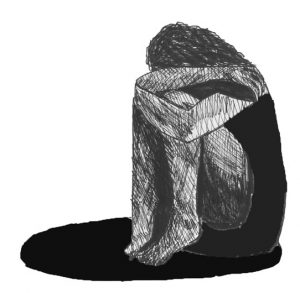No one deserves to be hit or threatened. If someone you love is hurting you, make plans and take precautions to keep yourself (and your children) safe.
Dealing with Domestic Violence
When you are physically abused, go to your doctor or community health centre as soon as possible after the incident and ask for a medical report of abuse. You will get the medical report and your doctor or health centre will keep a copy. If bruises and injuries are visible, take photographs to attach to the medical report. Think of it as: a motorist has ‘knocked you down’ and do the same as you would for a traffic accident.
If your abuser is at home, it may not be possible to go to your doctor or community health centre immediately. The next day they may apologise and cry and promise never to do it again. GO ANYWAY, the damage may be deeper than you think!
Domestic Violence & the Law
 Report the incident to the nearest Police Station, taking with you the medical report and any photographs. The Domestic Violence Act (Trinidad & Tobago) demands that the police record the incident, but sometimes they will not do so if you do not insist. Make sure it is recorded and request a copy of the police report.
Report the incident to the nearest Police Station, taking with you the medical report and any photographs. The Domestic Violence Act (Trinidad & Tobago) demands that the police record the incident, but sometimes they will not do so if you do not insist. Make sure it is recorded and request a copy of the police report.
You are no more to blame nor should you be any more ashamed of the abuse than you would be if you had been ‘knocked down’ by a motorist.
If the abuse happens again or if the abuser threatens to harm your children, parents, pets or other members of the family, go to the Family Court if custody of children is an issue, or to the nearest Magistrate’s Court if you don’t live in Port of Spain. Ask for a Protection Order form. Fill out the form and give it to the Clerk of the Court, who will tell you when to come back for the hearing.
A Protection Order will have other conditions such as requiring the person to stay away from your home or place of work. You will have to convince the Magistrate that you have a reasonable fear of the abuser, and the abuser will also be in Court. A Protection Order may last over one (1) year. The Magistrate decides how long it will last.
The alternative is to charge the abuser with assault. If you cannot afford a lawyer, go to Legal Aid or say to the Court that you have no legal representation and ask the Court to provide one.
If your life has been threatened, tell the Clerk of the Court and ask for an emergency hearing to get an Interim Order. The Interim Order, which is to be given to the abuser, orders the abuser to stay away from your immediate vicinity.
You can also apply for an Undertaking in the Court. This is a paper signed by a person promising to keep the peace and be of good behaviour. If this is not something that the abuser will respect, ask instead for a Protection Order.
Preparing to Leave
If you prefer to leave instead of giving the abuser the Interim Order, do the following:
- Keep evidence of abuse, i.e. medical reports, police records, etc. in a safe place that is accessible to you
- Know where you can go to get help; tell someone you trust what is happening to you
- Make sure your children know that it is their job to stay safe — not to protect you
- Keep a journal of all violent incidents
- Start an individual savings account and have statements sent to a trusted friend
- Acquire job skills
- If you must sneak away, leave extra money, extra car keys, passport, important papers and an extra set of clothes for yourself and children, with a trusted friend (avoid family members and mutual friends who may be influenced by the abuser). Include a list of important numbers and information, e.g. insurance numbers, driver’s license, medication, cheque book, credit card numbers, etc.
- Practice effective self-defence moves… just in case
Getting Out
 If you are contemplating leaving an abusive relationship, make an escape plan. This plan identifies some things that may assist you in the process of leaving:
If you are contemplating leaving an abusive relationship, make an escape plan. This plan identifies some things that may assist you in the process of leaving:
- Make sure you have important documents, e.g. identification card, passport, driver’s licence, birth certificate, etc.
- Save money in secret when you can
- Plan all possible escape routes — doors, first floor windows, elevators, stairwells — and rehearse escape routes with your children as you would for an earthquake or fire
- Arrange a safe place to go such as a friend or relative who will offer unconditional support; or a guest house, hotel or shelter
- Memorise the National Domestic Violence Hotline telephone number: 800-SAVE (7283) (Trinidad & Tobago)
- Secure transportation
- Work out a signal system with a friend or other family members so that they know you are in danger
- Go when the abuser is gone
- Don’t tell the abuser when you are leaving
- Create an excuse to slip away
- Avoid arguments in areas with potential weapons such as the kitchen, garage or in small spaces without escape routes
- When leaving your home, be aware; your abuser may try to hurt you to stop you from escaping
- Start learning self-defence techniques immediately
If you have nowhere to go…
If you have nowhere to go, call the Domestic Violence/Abuse Hotline: 800-SAVE (7283) within (Trinidad & Tobago). This is a 24-hour confidential hotline.
Callers are connected directly to get help in their areas, including emergency services and a shelter as well as receive information and referrals, counselling and assistance in reporting abuse. This is a vital lifeline to anyone — man, woman or child — who is a survivor of domestic violence or who suspects that someone they know may be a victim of abuse.
Information provided to WellnessConnect courtesy Source:
The Coalition Against Domestic Violence (Trinidad & Tobago)

